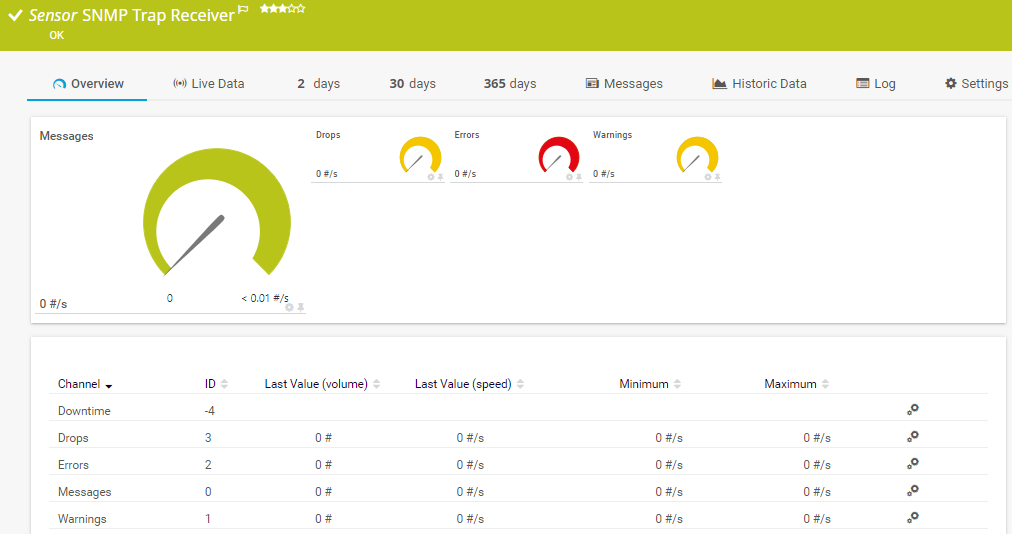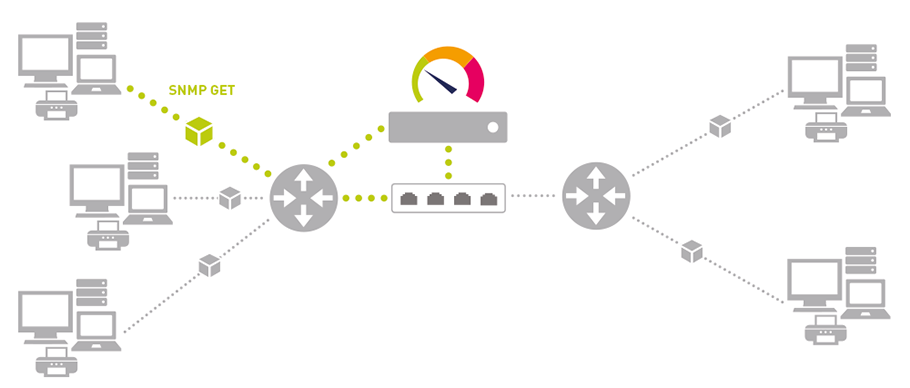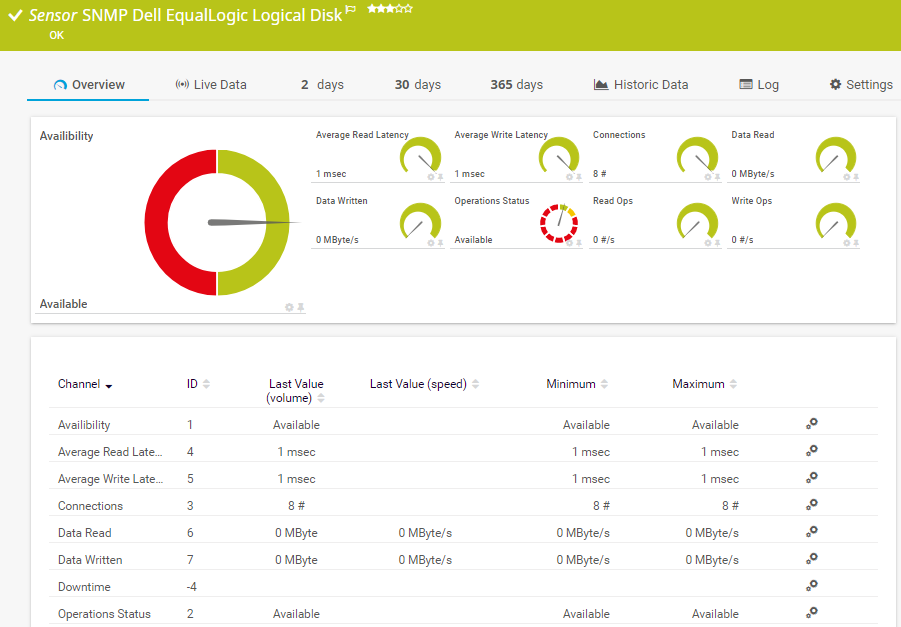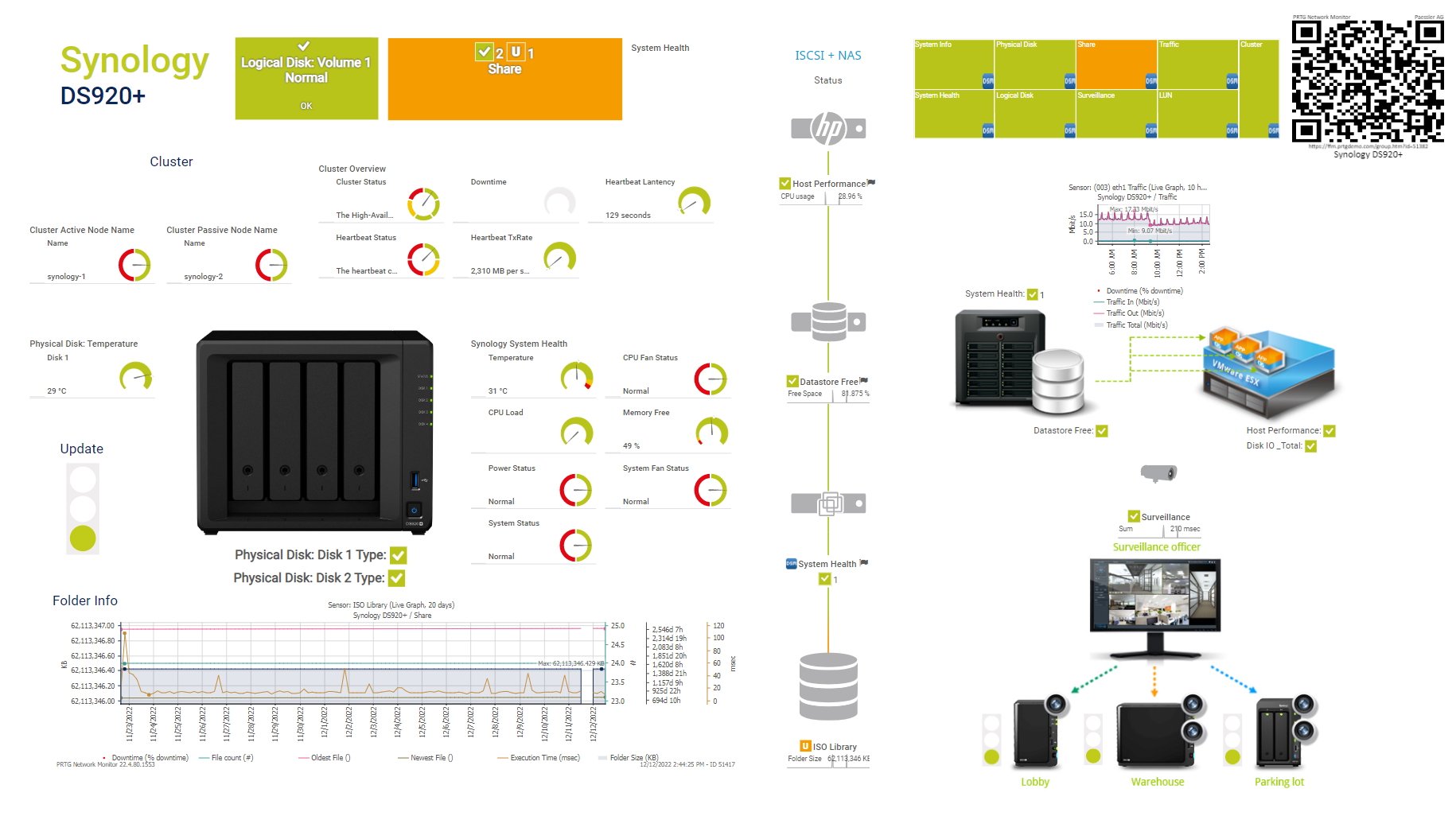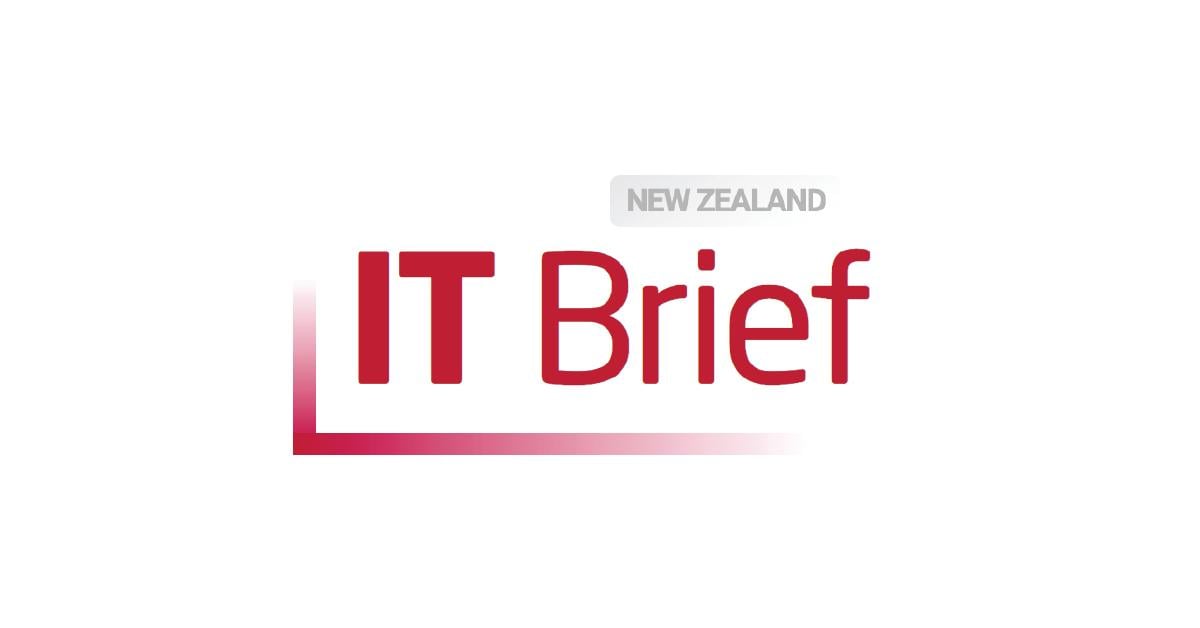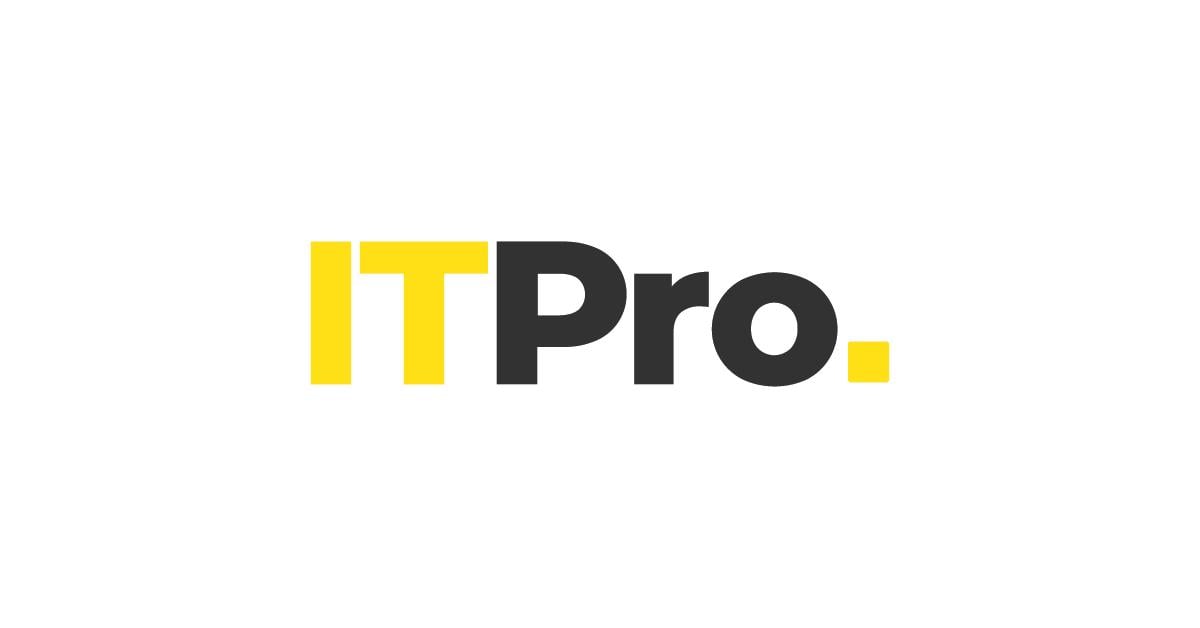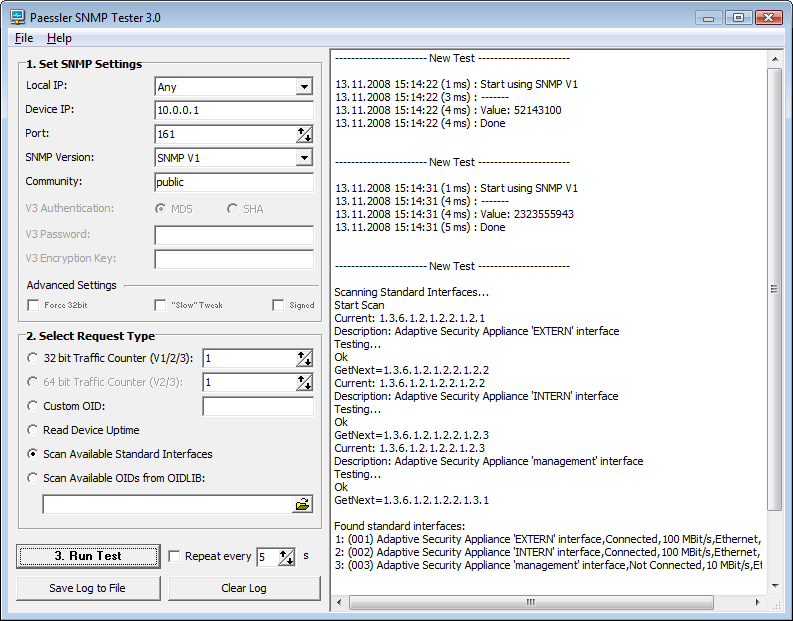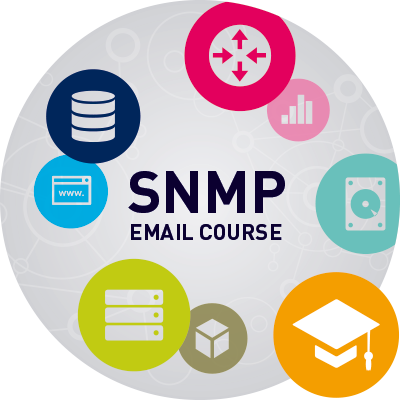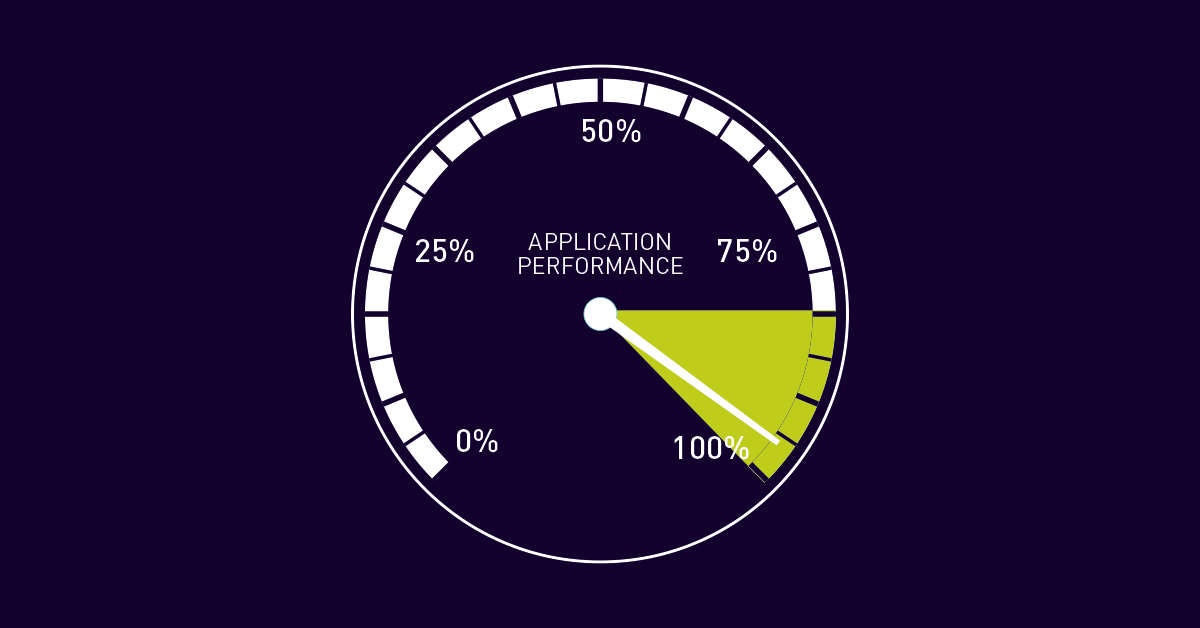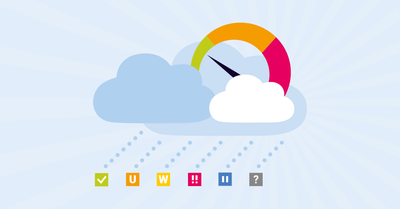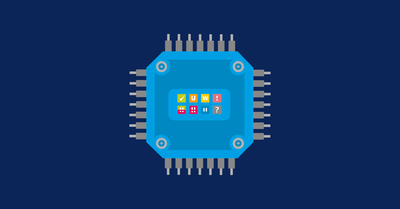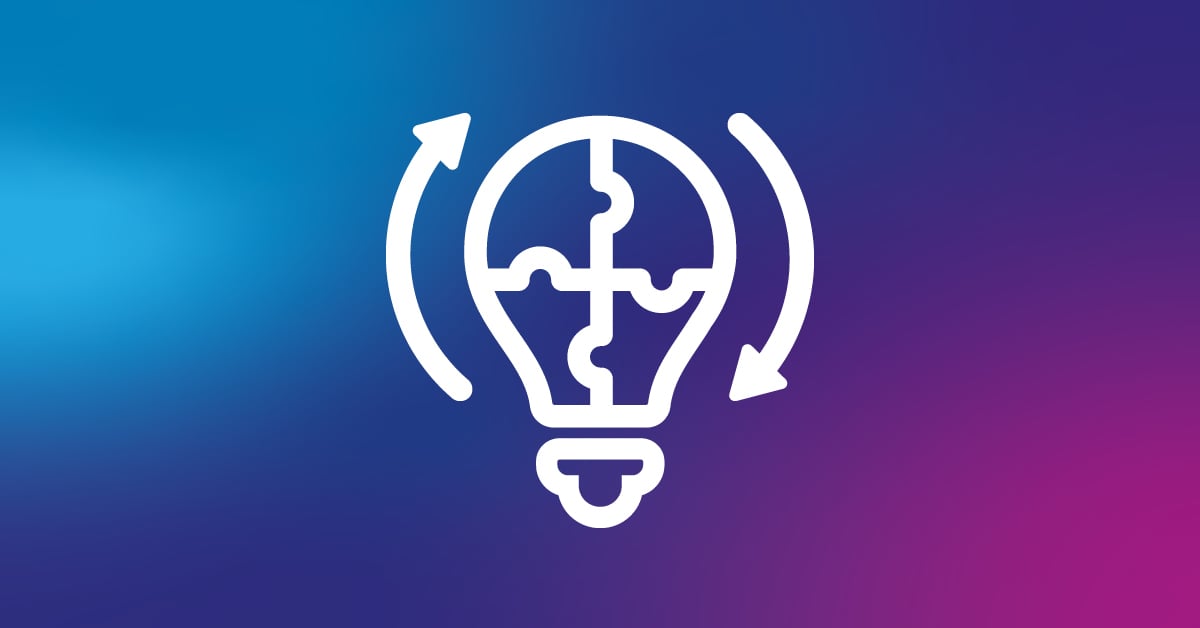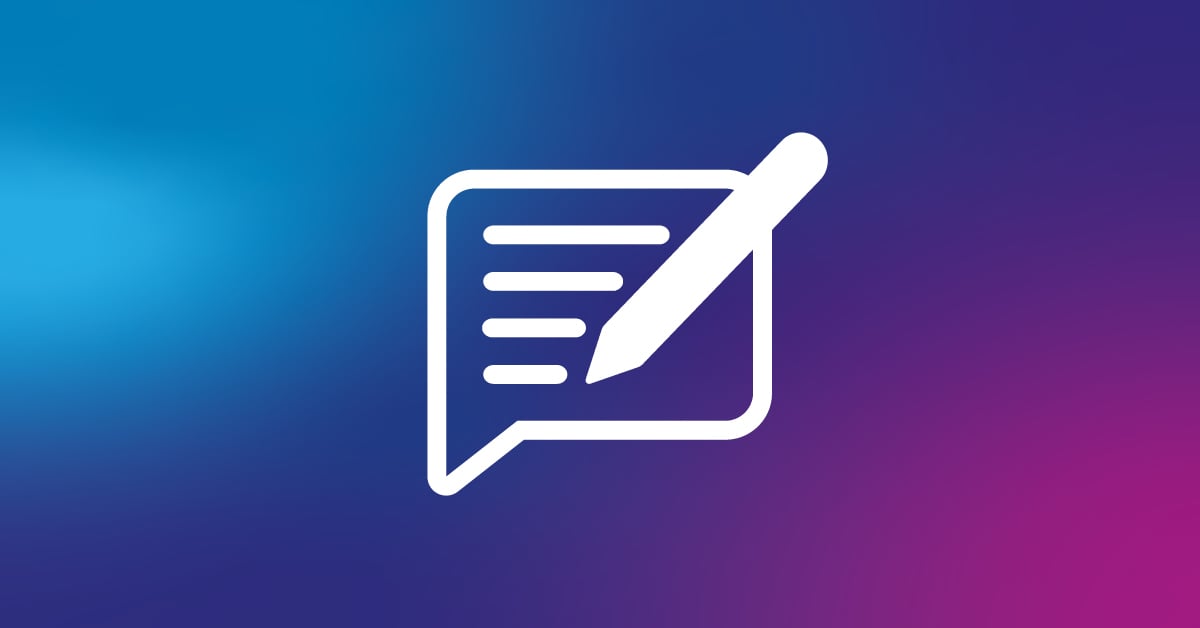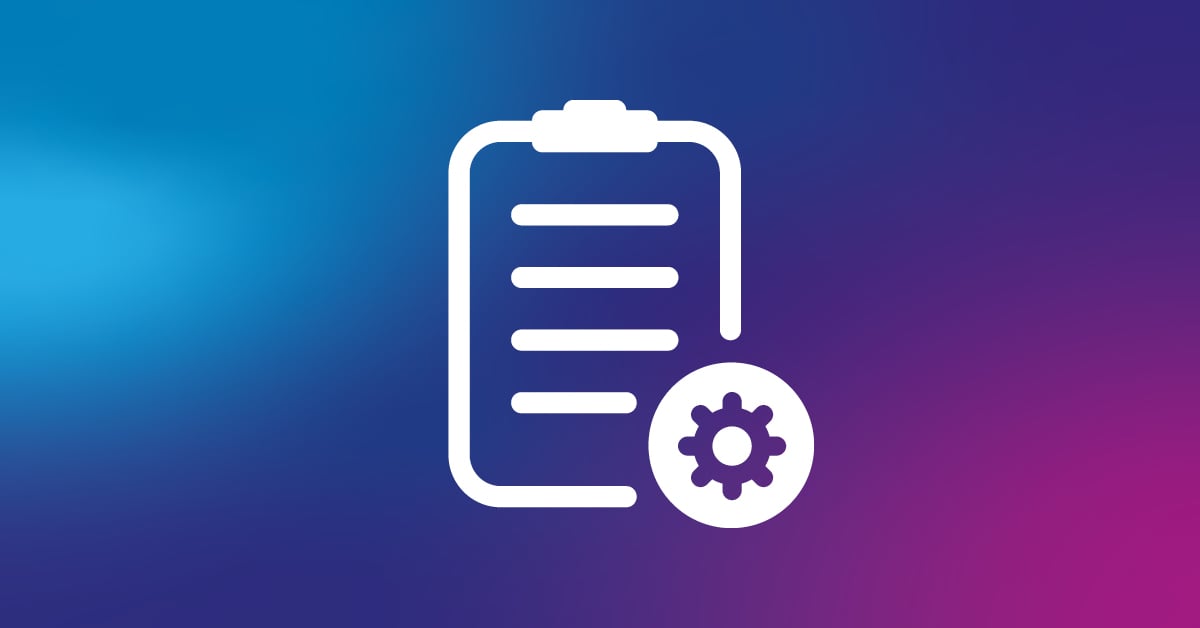Over 80 preconfigured PRTG sensors for SNMP monitoring: View the top 5 here
The complete solution for SNMP monitoring
Why choose PRTG SNMP monitor?
PRTG technical SNMP monitoring details
Need basic info about SNMP & SNMP monitoring? Check out our comprehensive FAQ
SNMP monitoring is easy with PRTG
Custom alerts and data visualization make it easy to monitor, identify, and prevent performance issues.
Basic features of the SNMP monitoring tool PRTG
How PRTG defines sensors
In PRTG, “sensors” are the basic monitoring elements. One sensor usually monitors one measured value in your network, e.g. the traffic of a switch port, the CPU load of a server, the free space of a disk drive. On average you need about 5-10 sensors per device or one sensor per switch port.
Preconfigured SNMP sensors
Paessler PRTG comes with several preconfigured SNMP sensors, including a series of sensors developed especially for device manufacturers such as Cisco, HPE, Dell, or Synology. The SNMP Custom sensor also lets you monitor a number of other devices from a variety of different manufacturers via SNMP.
From servers and routers to switches and more, PRTG provides you with a professional SNMP network monitoring solution and a comprehensive overview of your network.
Customizable alarm features
With the built-in alerting system of PRTG, you can you set the threshold values and notification methods (email, SMS, push notification, and more) any way you please.
PRTG includes a customizable notification system that you can define according to your own needs and requirements – including different escalation levels.
Automatic network discovery
The PRTG auto-discovery feature facilitates your search. PRTG checks all available devices in your network that have SNMP enabled and automatically creates suitable sensors.
This means that you can set up your initial configuration in just a few minutes, which allows you to focus on the fine-tuning later and start monitoring network devices right away.
Visualized reports
Communicate with management more easily with the help of historic monitoring data reports that not only include value tables, but also clear and comprehensible charts & graphs.
These reports come in handy, for example, when your hardware or network infrastructure is under heavy strain and you need to clear metrics to convince your higher-ups to provide you with the funds for an upgrade.
5 advantages of SNMP monitoring with PRTG
Generally speaking, every network device in a professional setting uses the Simple Network Management Protocol (SNMP). With PRTG, you can comprehensively monitor the health, traffic, and performance of your entire network via SNMP. SNMP boasts the following five advantages, among others:
Industry-leading reliability
Network monitoring via SNMP is extremely reliable. PRTG offers many preconfigured SNMP sensors that support all available SNMP versions (SNMP v1, SNMP v2c, and SNMP v3) and integrate with different manufacturers.
Minimal bandwidth usage
SNMP monitoring with PRTG requires less bandwidth than you may think. As an administrator, you therefore get the overview you need and the control that goes with it, without putting too much strain on your network.
Low CPU load
As is the case with bandwidth usage, processors are barely affected by SNMP monitoring with PRTG. The CPU load generated by SNMP v1 and v2c is nearly imperceptible, even if you have a large IT infrastructure including several thousand sensors.
Compatibility
PRTG SNMP monitoring is compatible with major device manufacturers (including Cisco, Dell, HPE, and others), whose network devices all support SNMP. For many devices, it is the only protocol used to read values.
Platform independence
SNMP is a platform-independent standard. Activate the SNMP service on your Windows computer or configure the SNMP daemon in Linux. SNMP is also available for macOS. You can therefore integrate all your systems into the comprehensive SNMP management software PRTG.
Use PRTG as an SNMP Trap Receiver
All in one, receive & analyze SNMP traps
PRTG not only uses the SNMP protocol to actively request data from network devices. With the preconfigured SNMP Trap Receiver sensor, it also passively collects SNMP traps sent by the SNMP-enabled devices and analyzes them according to the filter rules you set. If there is a critical event, you are immediately notified so that you can react accordingly.
Start SNMP monitoring with PRTG and see how it can make your network more reliable and your job easier.
What SNMP monitoring looks like in PRTG
Diagnose network issues by continuously monitoring all your servers and other network devices. Show server status in real time and visualize data in graphic maps & dashboards to more easily identify problems. Gain the visibility you need to troubleshoot SNMP issues.
PRTG is compatible with all major vendors & manufacturers
Your SNMP monitoring at a glance – even on the go
Set up PRTG in minutes and use it on almost any mobile device.
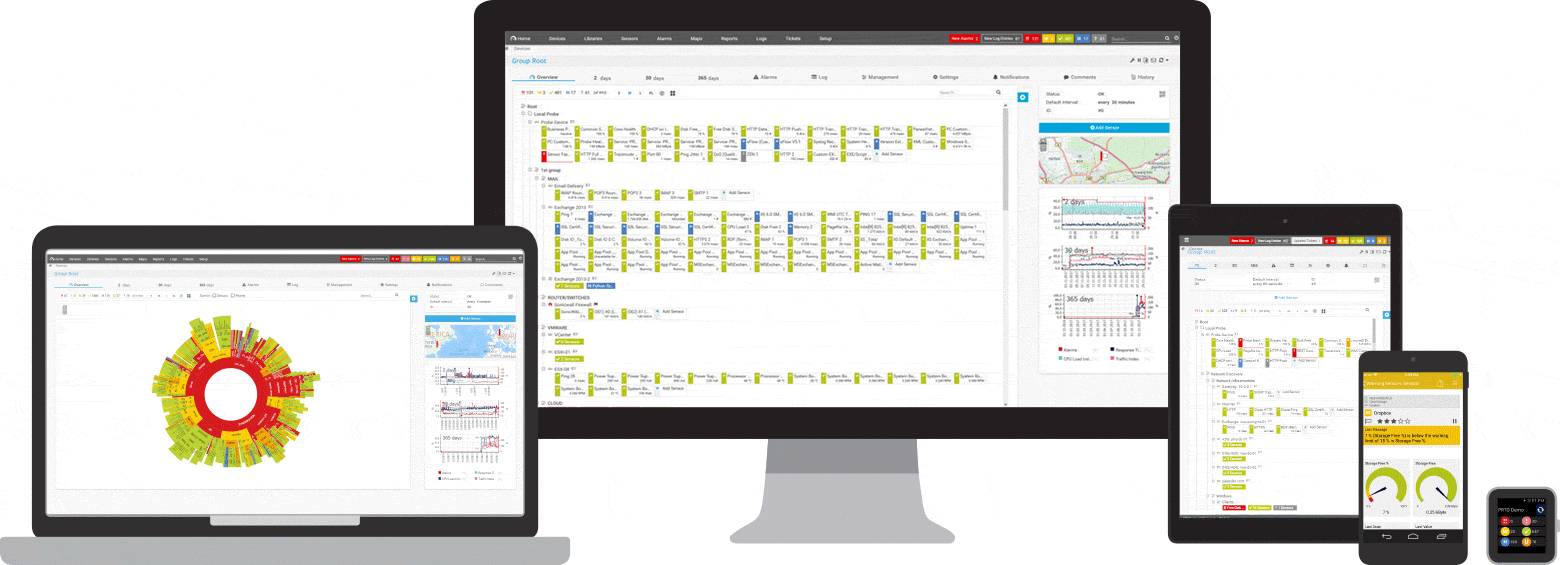

Start SNMP monitoring with PRTG and see how it can make your network more reliable and your job easier.
Check device support
Check to make sure your devices support SNMP. As SNMP has been a standard for several years for manufacturers such as Cisco, Juniper, HPE, Lenovo, Dell, and many others, this should not be a problem.
In addition, PRTG comes with preconfigured SNMP sensors that integrate with almost all major device manufacturers.
Enable SNMP
Enable SNMP on the devices themselves because for many devices, the default SNMP setting is “off.” If there is a firewall between the devices and the PRTG server, you need to configure the firewall accordingly.
Activate SNMP port 161 and open all outgoing ports greater than 1023 for SNMP on the PRTG side of the firewall.
Create suitable PRTG sensors
Let PRTG automatically discover all available devices in your network that have SNMP enabled. PRTG also verifies which SNMP version is supported and creates suitable sensors for each device.
The sensor settings must be compatible with the device’s SNMP version so PRTG can read and display the data.
SNMP v1 vs. SNMP v2c vs. SNMP v3
SNMP is a common standard for monitoring the functionality of single network devices and whole networks. It was born out of the need of different manufacturers for their devices to speak the same language.
SNMP v1
- Does not support encryption
- Only supports 32-bit counters
- Easier to use than other SNMP versions
Recommended only for use in private LANs that are not connected to the Internet.
SNMP v2c
- Does not support encryption
- Supports 64-bit counters
When people speak of SNMP version 2, they usually mean SNMP v2c.
SNMP v3
- Supports encryption
- Supports 64-bit counters
- Complex to set up
Significantly increases the security of monitoring via SNMP.

“Hey Luciano, what would you tell administrators looking to set up SNMP monitoring with PRTG?“
“With PRTG, you not only get the many standard sensors which exist for SNMP monitoring, but also the ability to monitor devices even without having a native sensor for them. You can thus monitor practically any SNMP-compatible device! First of all, obtain the relevant MIB file containing a definition of all available OIDs from the manufacturer of your hardware. Then use the MIB importer to make the MIBs available to PRTG, and create an SNMP Library sensor. Finally, select the properties of the target device you’d like to monitor, and within no time at all you’ll have the data you need!“
Luciano Lingnau, technical support at Paessler
Professional SNMP monitoring software PRTG
vs. other SNMP monitoring tools
Network devices that use SNMP are also referred to as SNMP clients. As an adminstrator, you need SNMP monitoring software that can collect and read data from these clients using SNMP.
Professional SNMP monitoring software
- PRTG is professional SNMP monitoring software that monitors various operating systems (Windows, Linux, macOS) and network devices using SNMP and many other technologies and protocols.
- With more than 80 preconfigured SNMP sensors for all SNMP clients from major hardware manufacturers, PRTG has a solution for every problem.
- SNMP monitoring with PRTG is easy to configure. Should you still encounter issues while setting it up, our Paessler Support team will offer you expert advice and assistance.
Other SNMP monitoring tools
- There’s no shortage of free tools and open-source software for SNMP monitoring on the market that caters to different needs, including Net-SNMP for Linux.
- Some tools let you query SNMP-related information from the command line (using snmpwalk or snmpget, for example), which is not very intuitive to use.
- Although these open-source SNMP tools may be free of charge, they usually do not come with a built-in alerting system or native maintenance and support.
With PRTG, you monitor your entire IT infrastructure round the clock. If there is a problem in your network, you'll be alerted immediately so that you can take the necessary steps to troubleshoot the issue.
The Top 5 PRTG sensors for general SNMP monitoring
Use the following five SNMP sensors to monitor the most important features on your network devices, no matter by which vendor or manufacturer.
SNMP CPU Load
This sensor shows you the extent to which your processors are being utilized as well as the total CPU load in percent.
SNMP Disk Free v2
This sensor shows you how much hard disk space is available in bytes and in percent as well as the total space used.
SNMP Memory
This sensor shows you how much memory is available in bytes and in percent as well as the total memory used.
SNMP Traffic
With this sensor, you get a constant overview of the amount of ingoing and outgoing data traffic flowing through a device's ports.
SNMP Hardware Status
This sensor allows you to keep a constant eye on the health of your hardware. It shows the general status as well as the number of errors.
More SNMP sensors
PRTG offers more than 80 preconfigured SNMP sensors for easier setup. Find them in our SNMP sensor list.
SNMP authentication:
Common errors & fixes
Problem: Can't establish a connection
If you encounter errors when trying to establish a connection between our software and a specific network device, you'll likely see one of the following 3 error messages:
- "Could not connect"
- "Error 1060"
- "Error 2003"
Solution: Select the right SNMP version
One reason for such problems is that you might have selected the wrong SNMP version in PRTG. It is important that the SNMP version enabled on the network device and the version selected in PRTG match.
Open the respective device settings in PRTG and check the selected SNMP version. For more information on how to do this, see our Knowledge Base article.
SNMP monitoring with PRTG eliminates network problems
Real-time alerts and preconfigured sensors make it easy to solve issues with the health of your network.
“Excellent tool for detailed monitoring. Alarms and notifications work greatly. Equipment addition is straight forward and server initial setup is very easy. ...feel safe to purchase it if you intend to monitor a large networking landscape.”
Infrastructure and Operations Engineer in the Communications Industry, firm size 10B - 30B USD
SNMP alternatives:
WMI, flow, packet sniffing
Packet sniffing
Monitoring via packet sniffing provides you with detailed insights into your data packets. This is particularly convenient if you'd like to take a closer look at issues with header traffic.
Free SNMP Tester tool: Solve problems
with SNMP monitoring easily
Do you have an issue with your SNMP monitoring? A sensor in PRTG reports an error – but you can't find out why? Use our SNMP Tester to identify the root cause of an issue quickly and easily.
With this free Paessler tool, you can run SNMP requests against your network devices and obtain detailed log files for inspection. This way, you can troubleshoot problems with your SNMP monitoring configuration at a glance.
Find more information here:
- What is an SNMP community string?
- SNMP, MIBs, and OIDs – an overview
- Read and analyze MIB files with PRTG
Create innovative solutions with Paessler’s partners
Partnering with innovative vendors, Paessler unleashes synergies to create
new and additional benefits for joined customers.
PRTG makes SNMP monitoring easy
Custom alerts and data visualization make it easy to monitor, identify, and prevent performance issues.
We asked: would you recommend PRTG?
Over 95% of our customers say yes!
Paessler conducted trials in over 600 IT departments worldwide to tune its network monitoring software closer to the needs of sysadmins.
The result of the survey: over 95% of the participants would recommend PRTG – or already have.
Start SNMP monitoring with PRTG and see how it can make your network more reliable and your job easier.
SNMP monitoring: FAQs
Find answers to some of the most common SNMP monitoring questions below.
1. What is SNMP?
SNMP stands for Simple Network Management Protocol and has three key components: managed devices, agents, and network management systems (NMS). The protocol is a set of standards for the communication between devices in a TCP/IP network.
2. What is an SNMP community string?
The SNMP community string is like a user ID or password that allows access to a network device's statistics. SNMP community strings are only used by devices that have SNMP v1 or SNMP v2c enabled. SNMP v3 uses username/password authentication, along with an encryption key.
3. What are SNMP traps?
SNMP traps are alert messages that include information about errors and other events on a network device. They are automatically sent by the device to the SNMP server monitoring software without first being requested to do so.
4. How does SNMP client communication work?
Network devices that use SNMP are also referred to as SNMP client devices. In traditional SNMP client communication, the SNMP server actively requests information from the client. However, the client and the server can also communicate via SNMP traps. These are data packets sent from the client to the server without any explicit request by the server.
5. Which SNMP version should I choose?
Which SNMP version you use depends on your individual needs and requirements. SNMP v1 does not support encryption, so it should only be used in private LANs. For highest security, you should use SNMP v3, which is, however, complex to configure. The SNMP version that is used most is SNMP v2c.
6. Does SNMP monitoring have a negative impact on network performance?
PRTG sensors use a variety of protocols to monitor your network and servers. The load generated by SNMP is quite insignificant in contrast, for example, to WMI or Windows performance counters, even for extensive monitoring with several thousand sensors. You’ll therefore rarely encounter drops in performance.
7. Why is SNMP monitoring useful?
SNMP monitoring is useful for anyone who is responsible for servers and network devices such as hosts, routers, hubs, and switches. It lets you keep an eye on network and bandwidth usage, and track important issues such as uptime and traffic levels.
8. What is the SNMP Tester?
SNMP Tester is a free tool by Paessler with which you can run simple SNMP requests against your network devices to troubleshoot issues with your SNMP monitoring configuration.
Learn about other types of PRTG monitoring
Still not convinced?
More than 500,000
sysadmins love PRTG
Paessler PRTG is used by companies of all sizes. Sysadmins love PRTG because it makes their job a whole lot easier.
Monitor your entire IT infrastructure
Bandwidth, servers, virtual environments, websites, VoIP services – PRTG keeps an eye on your entire network.
Start SNMP monitoring with PRTG and see how it can make your network more reliable and your job easier.
|
PRTG |
Network Monitoring Software - Version 24.4.102.1351 (November 12th, 2024) |
|
Hosting |
Download for Windows and cloud-based version PRTG Hosted Monitor available |
Languages |
English, German, Spanish, French, Portuguese, Dutch, Russian, Japanese, and Simplified Chinese |
Pricing |
Up to 100 sensors for free (Price List) |
Unified Monitoring |
Network devices, bandwidth, servers, applications, virtual environments, remote systems, IoT, and more |
Supported Vendors & Applications |
|
